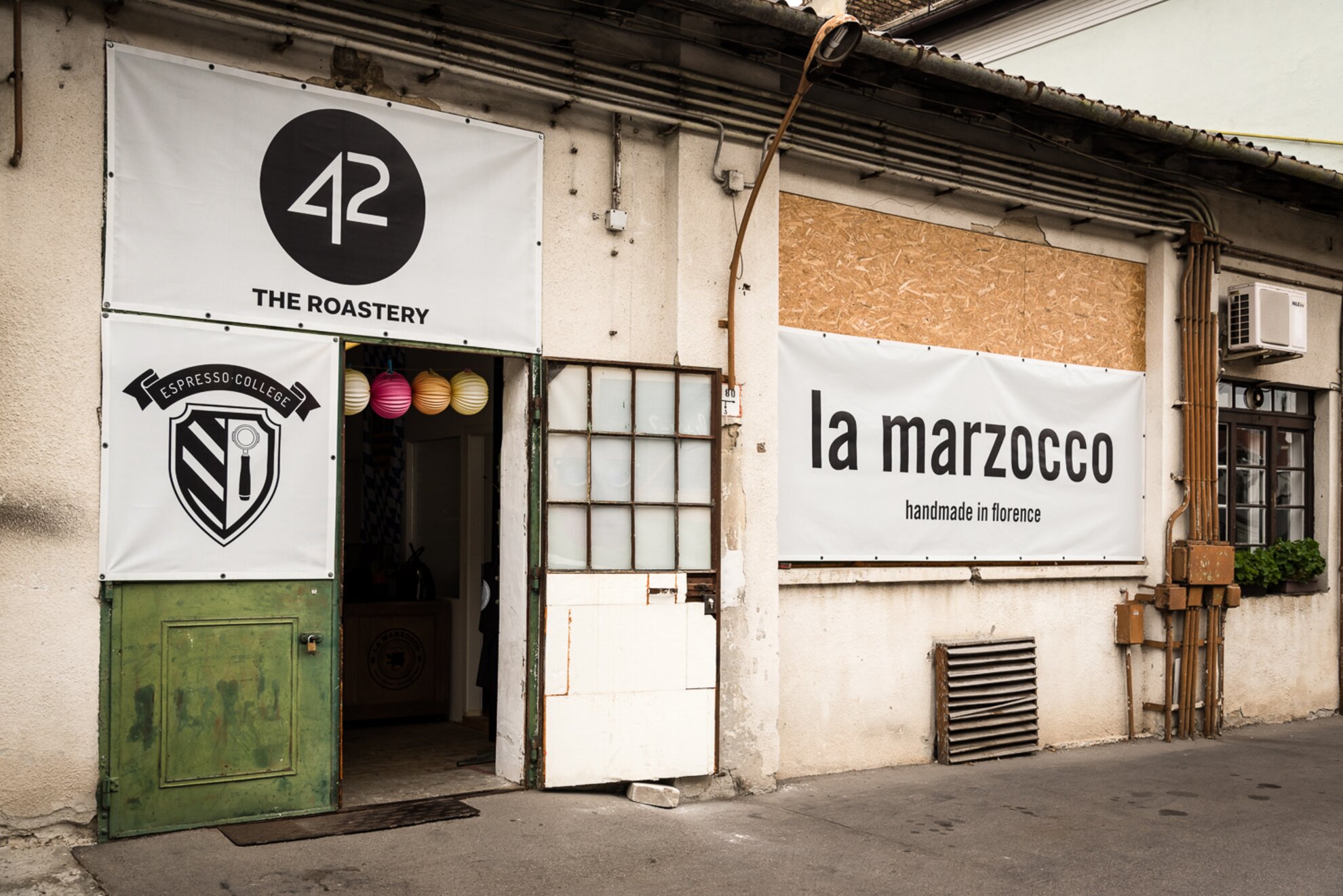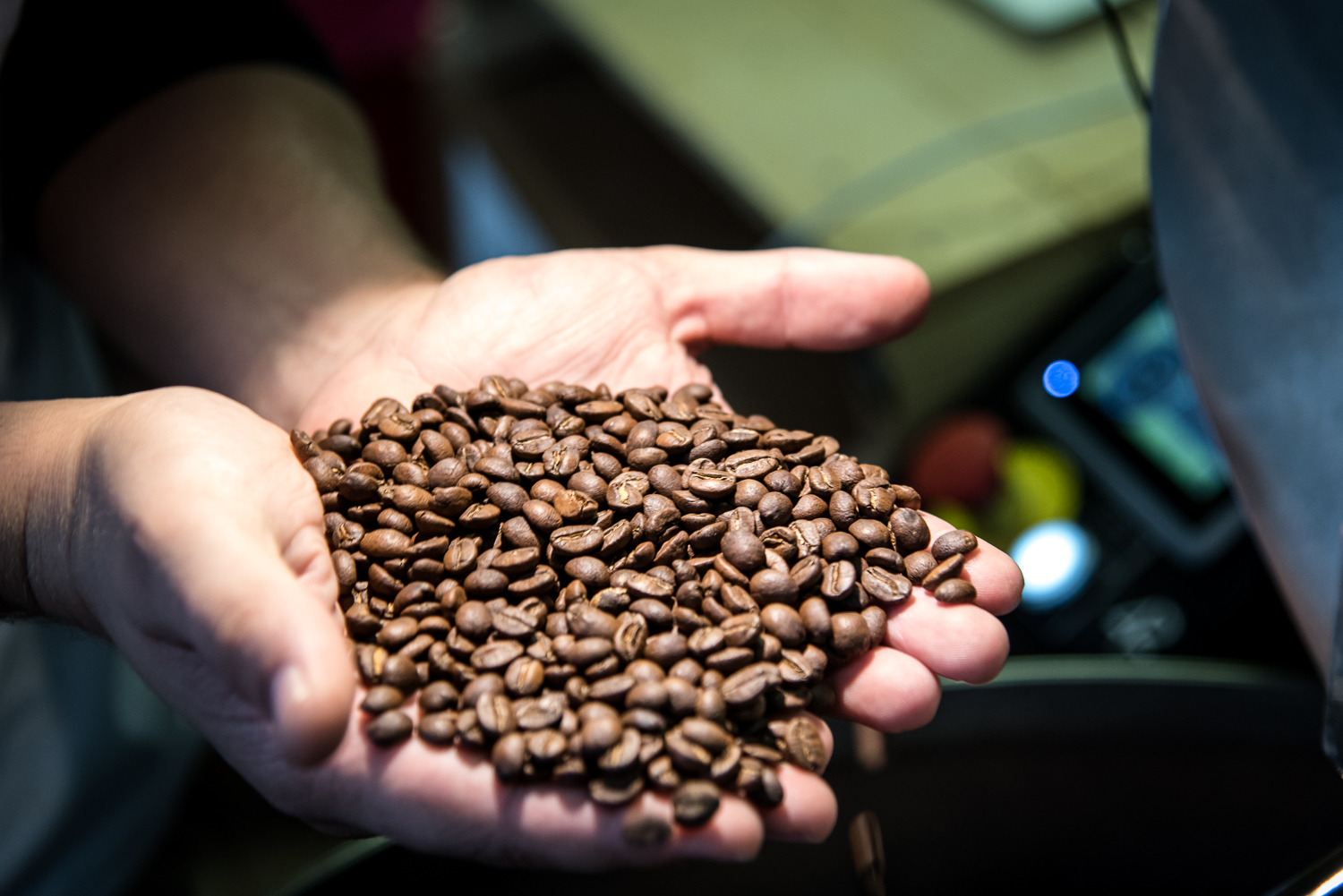Our most loyal readers may be a little bored by how we go on about the coffee revolution currently unfolding in Budapest, but we just can’t stop buzzing about it – there always seems to be another new java-related innovation brewing here. Now we’ve discovered Espresso College, which is true to its name: a Budapest institution dedicated to teaching future baristas, café owners, and coffee lovers everything worth knowing about the world’s most popular caffeine-rich concoctions. We ventured out to District XXII to check it out – here’s what we learned in 60 minutes.
We’ve discussed at length how – just like street food – Budapest’s coffee culture is making impressive progress over the past few years. We’re talking the kind of progress that goes from perfecting how many spoonfuls of instant coffee to scoop into each cup to creating precise blends from fresh-roasted beans with the complex scientific exactitude of making wine. Every little detail matters at this level: where the coffee beans are from, how they are roasted, who brews the coffee, and what kind of equipment is used. That’s why Ádám (the fanatic barista of La Marzocco) and master roaster Máté decided to launch Espresso College, a shrine where they can train baristas and roast coffee under the same roof.

42 Coffee has procured unique coffees for years, roasting the beans to suit the demands of each customer as exactly as possible. They know from experience that a lot depends on the method of preparation as well, and it seems like people from all fields of life agree: the Budapest school and roasting workshop started welcoming guests in February, and the doors have been open pretty much nonstop ever since. Top-notch restaurants send their baristas here to train, catering-establishment owners are frequent visitors too, and there are those who come in simply for the perfect cup and some chitchat.

We dropped in for a crash course to sample filter coffees like Kiandu from Kenya, as well as an espresso blend made from Burundian Muruta and Finca Bonanza from El Salvador. We immersed ourselves in the mysteries of this intricate beverage, tasting five kinds of brews with a coffee spoon: a Brazilian Pantano pulped natural, Finca Bonanza from El Salvador, Muruta from Burundi, a Salvadoran-Brazilian pulped natural blend, and an Indonesian Wahana natural blend. Finally, we were acquainted with Toddy, a special, cold-brew Kiandu from Kenya that the guys made by soaking it for 20 hours in a bucket in the fridge.

The names are not particularly telling at first, but once you try the coffees, it becomes clear as day that different settings and methods of roasting yield different brews altogether, even if you use the same kind of beans. The roaster itself looks like an industrial oven: the temperature and the amount of air going through it during the roasting process is set electronically. We have to admit we didn’t understand much of what we heard, but there was no need to stress: we just kicked back and gave ourselves over to the divine fragrance of freshly roasted coffee beans.

The things you can learn at the courses of Espresso College are absolutely serious: the five-day training, which lasts from morning until no one can handle stuffing more knowledge into their head (or until everyone gets severe caffeine poisoning), costs 150,000 forints, but certain partners are eligible for customized pricing. Adding to the international appeal of these courses, English-language lessons are also available with advance notice.
The heaps of information and the crazy amount of coffee make this a very hard course to complete – we took a class for dummies, but our hands were shaking after an hour and a half. Nevertheless, the experience was definitely worth getting our heart rate through the roof.
Address: Budapest 1222, Nagytétényi Avenue 106
Facebook




